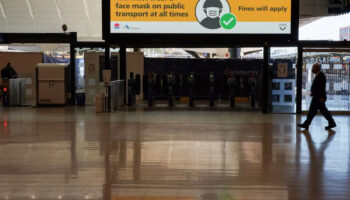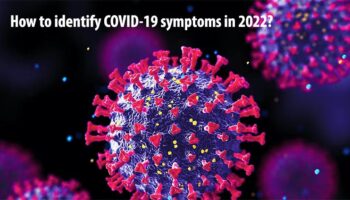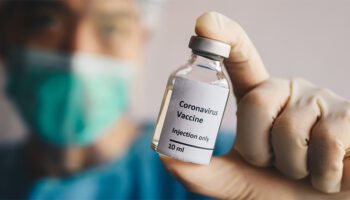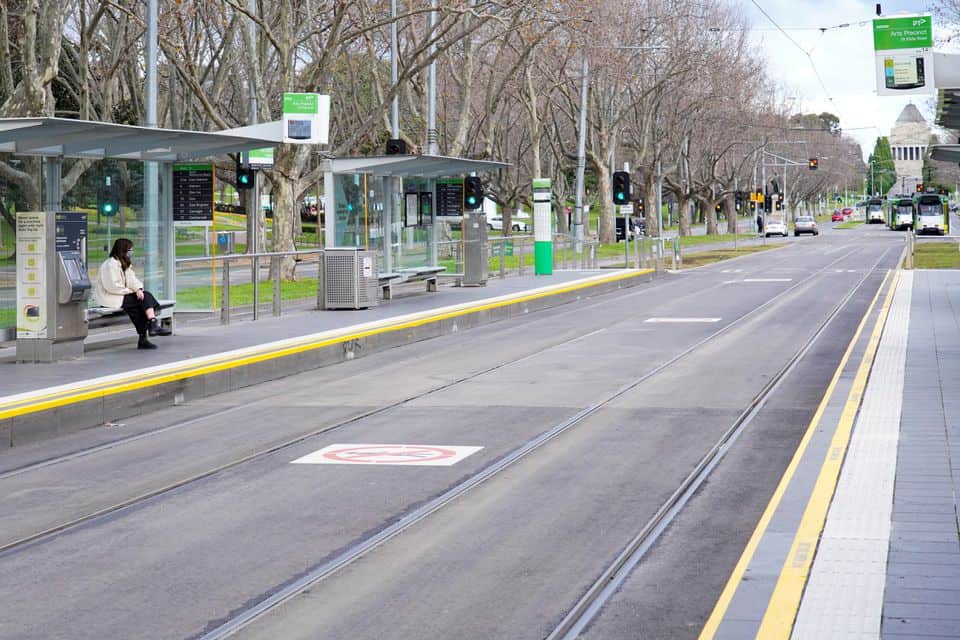
In Australia
Despite a minor decline in new infections, the COVID-19 lockdown in Victoria state will be extended until Tuesday, according to Australian officials, as the country’s two largest cities seek to curb the spread of the highly virulent Delta form.
Victoria’s state premier, Daniel Andrews, said the lockdown would not be removed since instances were still being discovered in the community but promised more information on Tuesday.
“We might get a few days of sunshine, but there’s a good chance we’ll be back in lockdown. So that’s what I’m trying to stay away. “said Andrews; the lockdown will not be lifted as scheduled.
On Monday, Victoria, Australia’s second-most populous state and home to Melbourne, reported 13 locally acquired cases, down from 16 the day before. All new local cases have been connected.
After the fast-moving Delta strain produced the country’s greatest epidemic this year, over half of Australia’s people have been confined to their homes, with Sydney, the country’s largest city, in a five-week lockdown and all of Victoria state under stay-at-home orders.
New South Wales (NSW), whose capital is Sydney, recorded 98 new locally acquired cases, down from 105 the day before. At least 20 of the new patients were infectious in the community, consistent with the previous few days.
During a televised press conference, NSW state Premier Gladys Berejiklian remarked, “That 20 figure is the number we are particularly anxious to move… the closer we get that number to zero, the sooner we can stop the lockdown.”
There are 82 individuals in hospitals right now, 24 of whom are in intensive care, and seven require ventilation.
Since the lockdown was first enforced on June 26, NSW has extended it twice, with the current limitations set to conclude on July 30.
Though the number of cases decreased on Monday, Berejiklian said the state would not feel the consequences of the hard lockdown for “another four or five days” and urged people not to mix with extended relatives because the majority of infections occur inside families.
Quick contact tracking, a high level of community compliance with strict social distancing measures, and lockdowns have aided Australia in containing previous outbreaks and keeping COVID-19 numbers low. However, there have been almost 31,900 instances reported, including 914 deaths.
Experts believe Australia is on the verge of entering a new cycle of stop-and-start lockdowns until it achieves high vaccination coverage by the end of the year.
According to an Australian newspaper poll released on Monday, Prime Minister Scott Morrison’s approval ratings have dropped to their lowest level in more than a year due to the delayed inoculation effort. Only 13 percent of the country’s adult population is wholly vaccinated. See more here
Officials said about one million Pfizer vaccine shots arrived in the country overnight after the federal government agreed to push weekly shipments scheduled for September forward, increasing the current supply.
Officials are also angry after allegations of people breaking social distancing guidelines in Sydney prompted the state police to launch “high-visibility patrols” around the beaches, including in the renowned tourist destinations of Bondi and Manly.
Controversial Katie Hopkins, a British pundit, will be deported after she joked on Instagram about answering the door naked and maskless to individuals delivering food while in quarantine in a Sydney hotel. See more here
“It’s mind-boggling that she thinks the precautions we’re taking to keep our society safe can be greeted with such immature, stupid behaviour,” NSW State Health Minister Brad Hazzard told reporters.
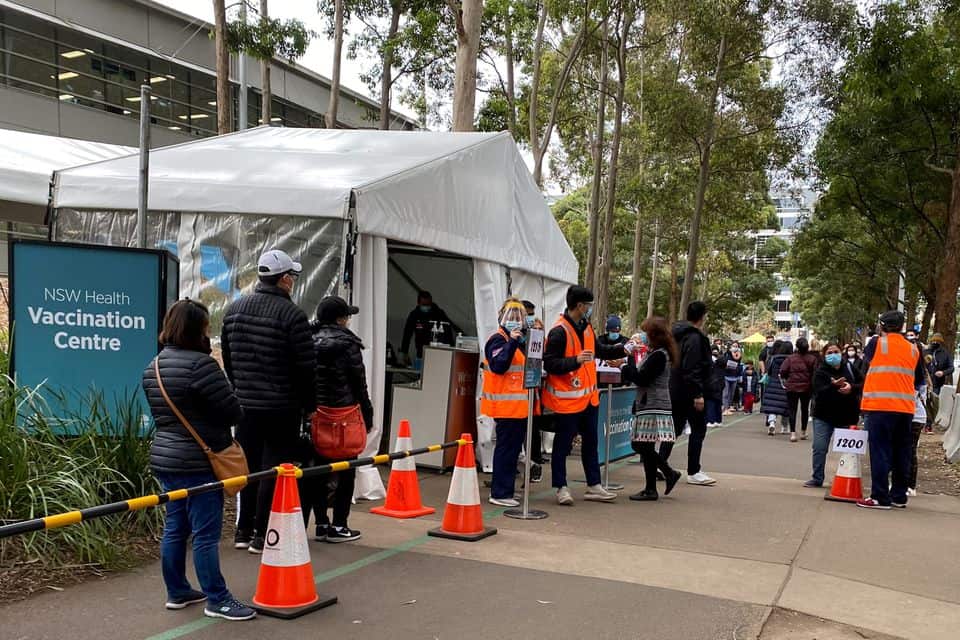
In The United States
Coronavirus cases and hospitalizations in the United States are still low. Still, they’re on the rise again, thanks to outbreaks in the country’s centre, South, and West, as well as small cliffs practically everywhere else.
The highly contagious Delta form, which currently accounts for the bulk of new infections in the United States, has spread quickly, fueling the nationwide outbreak. Although vaccines are effective against the variation — particularly in severe disease — new cases and hospitalizations are primarily increasing in areas where vaccination rates are low.
According to public health experts, this tendency is expected to continue, putting the country’s vaccinated and unprotected on drastically distinct pathways in the next phase of the epidemic. While half of the population has received all of their vaccines, the amount of protection varies significantly between states. In several places where vaccination levels are low, and the Delta variation is causing a surge in infections, such as Arkansas, Mississippi, and Missouri, Covid-19 hospitalization rates, a sign of serious illness, have risen dramatically in the last two weeks. At a recent news conference, Dr Rochelle P. Walensky, director of the Centers for Disease Control and Prevention, said, “Please know that if you are not vaccinated, you remain susceptible, especially from the transmissible Delta strain, and are particularly at risk for serious disease and death.”
Cases, outbreaks, and hospitalizations are all on the rise in Mississippi, where just 34% of the population is completely vaccinated. As a result, officials have advised senior people and those with chronic medical ailments to stay away from large indoor gatherings until July 26.
At a news conference last week, state health officer Dr Thomas Dobbs said, “We did forecast a few weeks ago that the Delta variation would be the prevalent strain circulating in the state of Mississippi.” “Unfortunately, those forecasts are coming true, and we’re starting to pay the price,” he said, citing epidemics among young people during summer parties and elderly people in nursing homes as examples.
“Our state’s collective under vaccination has put us all at risk, especially the most vulnerable,” he continued.
Sending a positive sample to a lab to be sequenced is required to identify the variant responsible for a coronavirus case, which can take several weeks after a person tests positive. As a result, only a small percentage of instances are sequenced in the end.
Because of the delay, there is no current data on variations, and the most recent data comes from extremely tiny sample numbers, which will most certainly move downward or upward as additional sequences arrive. However, according to the best estimates of academics, states with the most unprecedented vaccination rates have witnessed considerably lower rises in the absolute number of cases in recent weeks than states with lower vaccination rates.
According to Scripps Research experts, even when Delta becomes the most common variation in all states, the trend is expected to continue. outbreak.info, a project that records and visualizes Covid-19 genetic data, was created and is maintained by researchers at the university.
Scientists cite the variant’s climb to dominance in other nations where it has been circulating longer to explain Delta’s sustained trajectory in the United States. In addition, the differing levels of immunization in certain countries have resulted in quite different outcomes.
Delta fuelled an enormous spike in India, where the variety has initially been discovered, with case and death rates that specialists think were substantially undercounted. The point in infections in India began before even 1% of the population had been adequately vaccinated. As the death toll rose, overburdened hospitals turned away thousands of patients, oxygen supplies ran out, and fires raged all night at cremation grounds.
On the other hand, Delta became prominent in the United Kingdom after a considerable portion of the population had previously been vaccinated. Because of immunizations, the number of cases has increased. Still, hospitalizations and deaths have remained low compared to past peaks — including one caused by a variety that previously became dominant there, Alpha. As a result, the United Kingdom prioritized immunizing its elderly and others at high risk.
When the Delta variety became prevalent in the United Kingdom a few weeks ago, a lower percentage of all adults in the country were fully vaccinated than are fully immunized in the United States presently. However, because of substantially greater immunization rates across the country, Covid-19-related mortality remains low and are projected to continue well below past peaks in the United States.
However, the delay in the immunization program in the United States has raised some concerns. As a result, the Biden administration is redoubling its efforts to urge young people to get vaccinated, using YouTube stars and celebrities — most recently Olivia Rodrigo, the 18-year-old pop artist with the country’s No. 1 record — to broadcast pro-vaccine messages with their followers.
Researchers aren’t sure how much hospitalizations will rise in the United States, in part because older and more vulnerable populations are more vaccinated — nearly 80% of those 65 and older are fully vaccinated. And younger people, more likely to be unvaccinated, have milder infections.
“Based on what we’ve seen in the United Kingdom, we’d expect the rate of hospitalizations to be lower than in past waves,” said Karthik Gangavarapu, a computational scientist at Scripps Research, “but it’s still expected to be considered until we reduce transmission.”
In the United Kingdom

Since July 2, the number of new cases in the United Kingdom has climbed dramatically.
PHE publishes weekly updates on the number of confirmed new instances of variations of concern and variants under investigation in the United Kingdom.
According to PHE’s weekly COVID-19 variant cases data, the Delta (VOC-21APR-02) variant has increased by 36,800 instances in the UK since last week, bringing the total to 253,049. This is an increase of 17%. The Delta AY.1 sublineage accounts for 45 of them. Currently, the Delta variant accounts for roughly 99 percent of all instances sequenced in the United Kingdom.
The UK Health Security Agency’s Chief Executive, Dr Jenny Harries, said: “Case rates are still high and rising, but it’s reassuring that this does not appear to be related with an increase in hospitalizations or deaths.” This demonstrates the vaccination program’s sustained success in minimizing the occurrence of severe disease.
Getting both doses of the vaccine as soon as you are eligible is the most effective approach to protect yourself and the people around you. Vaccines, however, provide significant protection but may not remove the danger. So as we get closer to the conclusion of the restrictions, it’s more crucial than ever to be cautious. Take your free twice-weekly quick tests, and if you have symptoms, schedule a PCR test right away and stay at home until the results arrive.
However, a new PHE study finds that two doses of COVID-19 vaccination are highly effective against hospitalization caused by the Delta (B.1.617.2) variation for the first time.
• After two doses, the Pfizer-BioNTech vaccine is 96 percent effective against hospitalization, according to the study.
• After two doses, the Oxford-AstraZeneca vaccine is 92 percent effective in preventing hospitalization.
These results are equivalent to the Alpha variant’s vaccination effectiveness in preventing hospitalization.
More research is needed to determine the level of protection against mortality caused by the Delta variation. This, too, is projected to be high, as with other varieties.
The study looked at emergency hospital admissions in England and found 14,019 cases of the Delta variation – 166 hospitalized between April 12 and June 4.
PHE previously published research demonstrating that one dose is 17 percent less effective than Alpha at preventing symptomatic illness from the Delta variety. Still, there is only a minor difference after two doses.
Matt Hancock, the Secretary of State for Health and Social Care, said: “Our UK vaccination effort is continuing apace and has already saved thousands of lives. It is our only hope of surviving the pandemic.”
This evidence of the effectiveness of two doses against variations emphasizes the importance of getting your second vaccination.
If you’ve already had your first dose but haven’t scheduled your second, please do so right away. It will help save lives and get us back on our feet.
PHE’s Head of Immunisation, Dr Mary Ramsay, said, “These significant findings indicate that the immunizations provide significant protection against hospitalization due to the Delta variant.”
The essential tool we have against COVID-19 is vaccinations. Thousands of lives have been saved as a result of their efforts.
To receive optimal protection against all present and upcoming variations, you must take both doses as soon as they are supplied to you.
Nadhim Zahawi, the Minister of Vaccines, said, “It is incredibly encouraging to see today’s findings indicating that vaccines are continuing to help break the association between hospitalization and the Delta variation after one dosage, and especially the strong efficiency of two doses.”
If you’re getting a call to bring your second dose appointment forward, don’t wait; get the second shot right away so you can get the most protection possible.
According to a separate PHE report, the COVID-19 immunization program in England had avoided 14,000 deaths and nearly 42,000 hospitalizations among older persons as of May 30.
SOURCES:
